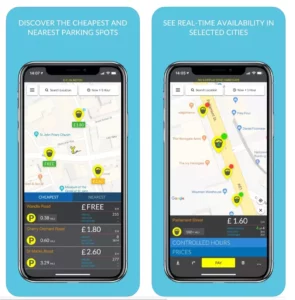A consortium of companies in Spain have launched CRETA, an innovative project to promote sustainable mobility and the reduction of emissions through 5G technology.
The objective of this initiative is to create and implement an “active and dynamic management solution” for transport and mobility based on the control of the real emissions of each vehicle and the optimisation of traffic flow through different disruptive technologies, with the aim of reducing transport emissions and protect the environment.
The CRETA project, delivered by MÁSMOVIL Group, ABERTIS, CELLNEX, INDRA, OPUS RSE, VINCES and ALPHA SYLTEC INGENIERIA is based on the integration of three different technologies; 5G, technology for remote measurement of traffic emissions, and advanced analytics and Artificial Intelligence, for optimal management of traffic mobility and air quality.
To achieve this goal, CRETA is based on the following pillars:
1. Communications: creation of a 5G system capable of interconnecting data between different sensors, infrastructures, and vehicles in real time.
2. Mobility: creation of a variable pricing system depending on the use and external environmental consequences produced by each vehicle and even, according to the rate of emissions per passenger.
3. Environment: Monitoring of the gradual reduction of the source of emissions (road traffic) with autonomous remote sensing systems and connected to the 5G network.
The consortium formed for the project “Control of Mobility and Reduction of Traffic Emissions” (CRETA), has obtained an endowment of €2.7 million (£2.3 million) financed by the European Union-NextGenerationEU within the framework of the Recovery Plan, Transformation and Resilience of the Ministry of Economic Affairs and Digital Transformation and the Recovery and Resilience Mechanism.
This Plan is part of the strategy to promote the deployment of 5G technology included in the Digital Spain 2026 agenda and in the Recovery, Transformation and Resilience Plan, and is aimed at carrying out experimental development projects for 5G applications and services that influence the digital transformation of key economic sectors for Spain.
Three companies say the pilot projects to demonstrate the favourable results of 5G technology
For the launch of this project, the CRETA partners are going to develop 3 pilots that will demonstrate the benefits of applying 5G technology to reduce traffic emissions in three strategic areas:
• Management of urban mobility and low emission zones (ZBE). Demonstration of a global system for monitoring, analysis and intelligent management of urban mobility in Madrid and Alcobendas, which will test dynamic pricing and access control to ZBEs based on different parameters. Different sensors and systems for remote measurement of emissions, cameras and the 5G network will be implemented on the M30 in Madrid and at the accesses to Alcobendas, for advanced monitoring of road traffic and its real emissions.
• Interurban mobility and access to cities. Through a pilot in Barcelona with the collaboration of the Barcelona City Council, Barcelona Metropolitan Area and the Generalitat of Catalonia. The ability to apply a tariff to the circulation of vehicles will be demonstrated, taking into account their real and individual emissions, variably adjusting the access fee to the city.
• Cross-border control and payment for pollution. By carrying out a pilot in Gipuzkoa (Irún) with the collaboration of the Gipuzkoa Provincial Council and the Basque Government, the capacities to discriminate against heavy vehicles based on their real emissions and activate alerts in real time if vehicles are detected will be demonstrated suspected of having been illegally manipulated.
(Picture – CRETA consortium)





















